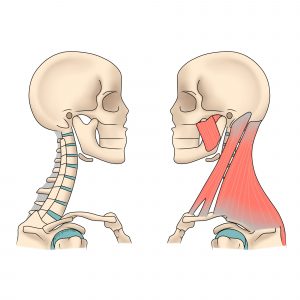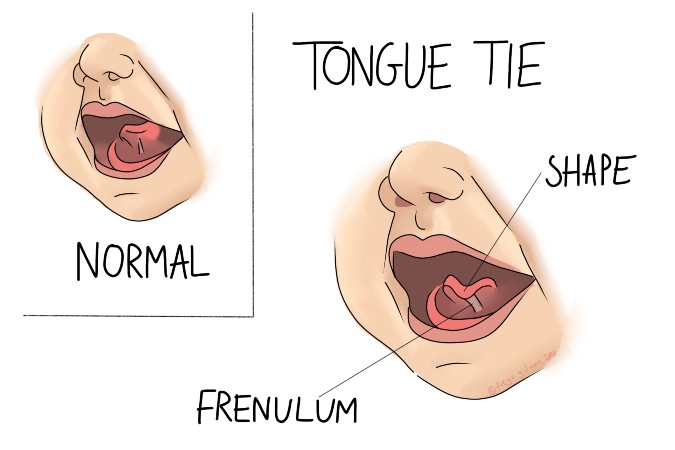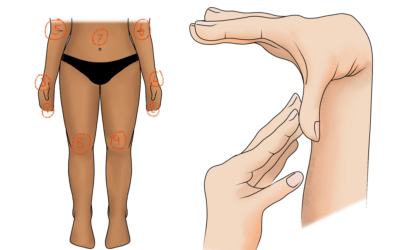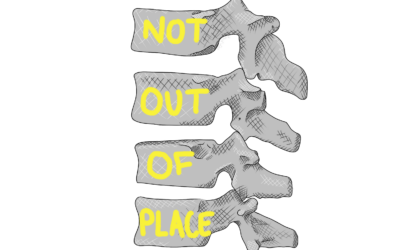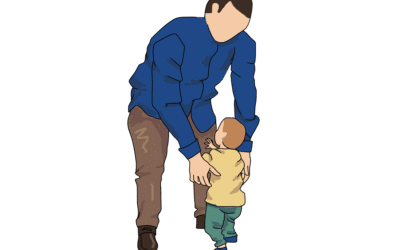Some babies are born with tongue tie or lip tie. It can be subtle or clear from birth.
Everyone has a thin piece of tissue called a frenulum that connects the underside of the tongue to the base of the mouth. If this is too short, too broad, or too tight, tongue movement can be reduced. When this causes a significant change, it is known as a tongue tie. Sometimes signs may be visible when baby cries: the illustration above shows a heart-shaped tongue. It appears this way if the centre of the tongue is limited. This baby may also struggle to stick their tongue out. Young babies might mirror you if you stick your tongue out at them, but not every baby will.
Lip Tie
The lesser known cousin of tongue tie is lip tie. Although the location of the problem is different, the nature of it is the same. You can feel with your tongue that there is another frenulum between your gum and top lip, right in the centre. There is another in the same place for the bottom lip. Either of these areas can be restricted by a shorter frenulum, but they might be harder to pick up on routine assessment.
Effects of Tongue Tie or Lip Tie
The first sign of either tie is usually feeding related. Breastfeeding requires mobility of the tongue and lips to create a good latch. When this does not happen, the baby may feed noisily, taking on a lot of air and suffering with wind afterwards. If they cannot get the nipple deep enough into their mouth, they can cause pain for the mother as they squash the nipple against their hard palate instead of the soft one. Although establishing breastfeeding can be uncomfortable, it should not be painful- although ties are just one potential cause for painful feeds.
An unaddressed tie may be associated with feeding problems later on when solids are introduced. There may also be speech difficulties as the child grows up, although this too is multifactorial.
Managing Ties
Depending on the severity of the tie and the age of the child, there are two possible approaches:
- Tie revision surgery. Where necessary, this is best done while baby is quite young. The nerves that conduct pain are not present in the frenulum at birth, so anaesthetic is not required. Once the nerves grow into the tissue, the surgery is complicated by anaesthetic.
- Conservative treatment such as manual therapy. The frenulum is a soft tissue, not dissimilar to a ligament. Osteopaths work with tissues like these every day, and the NICE guidelines recommend soft tissue work where appropriate. The aim here is to encourage the frenulum to stretch and allow movement of the tongue or lip.
It is worth noting that pre-surgery literature makes a point that surgery does not aim to alter speech.
If you are breastfeeding a baby with a tongue tie, you may also benefit from advice from a lactation consultant. Your osteopath can offer support too, where feeding positions cause you aches and pains (or even in pregnancy). Often the upper back and shoulders get tight as a result of a new, prolonged positional demand. We expect more tension in these muscles when feeding is painful. Earlier management of this tightness can reduce the secondary effects of altered breathing and headaches.














